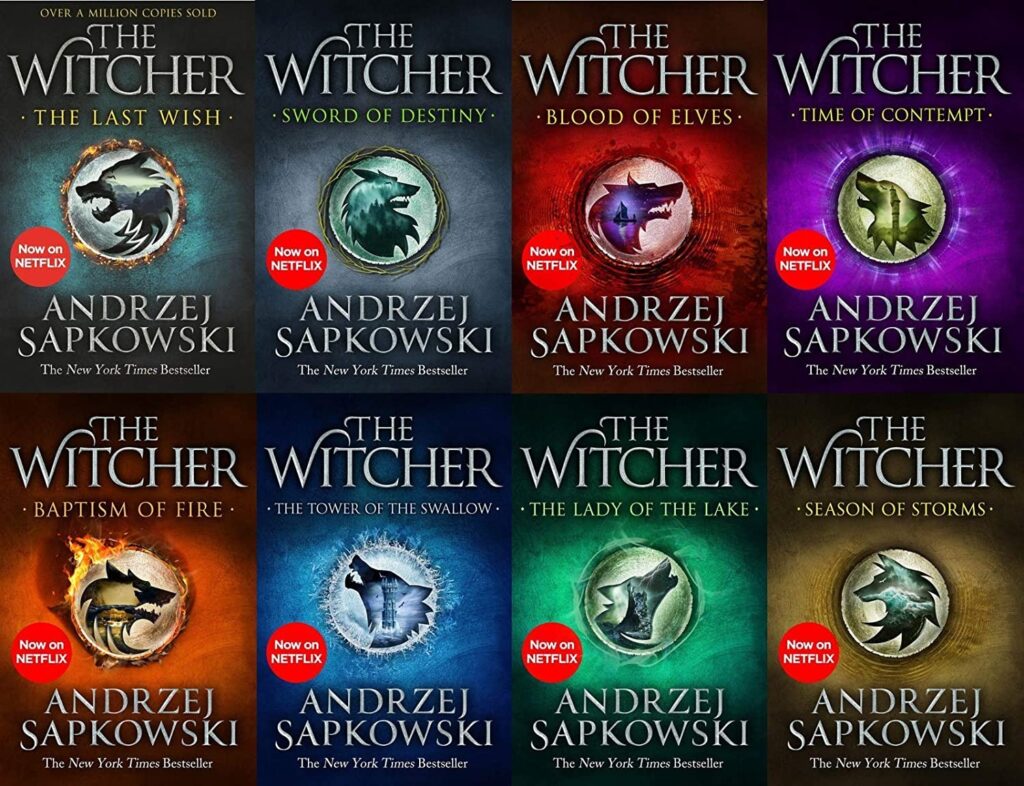Review by Tim Robins
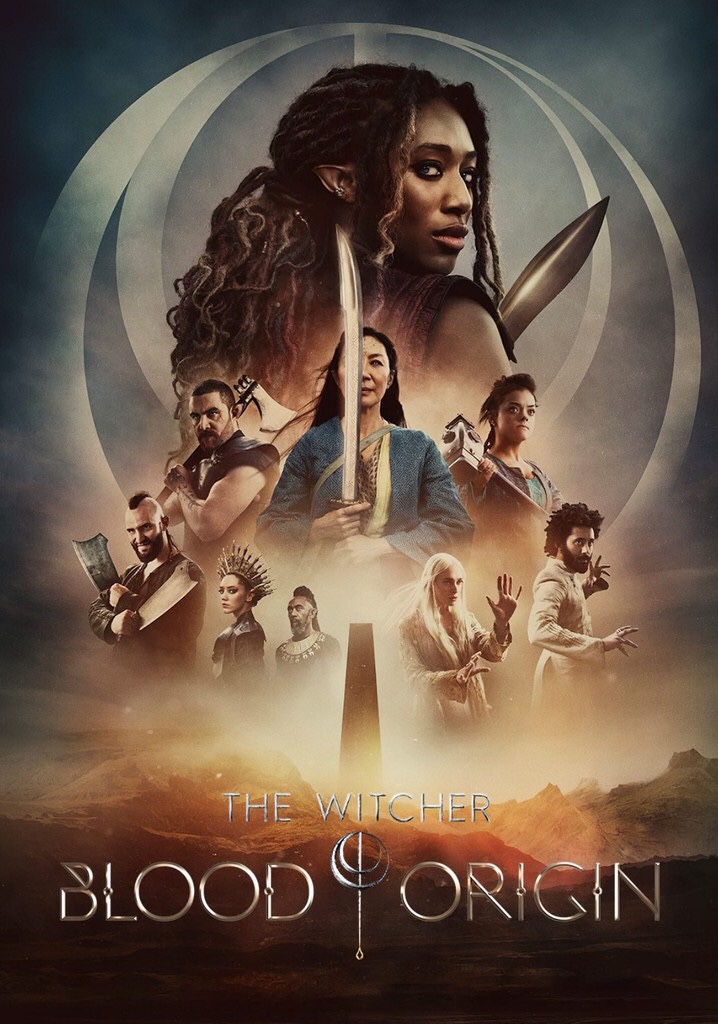
The Witcher: Blood Orange, sorry, Origin, is a four-episode prequel to Netflix’s The Witcher, a high fantasy series based on the short stories and novels of Polish writer Andrzej Sapkowski. The author’s work gained a committed readership and has been spun-off across video games, comics, RPGs and the aforementioned Netflix TV series.
Blood Origin has received some push back from fans of the written stories, and I can appreciate those readers’ annoyance at some major canon-busting incidents including the creation of a hitherto unsuspected ‘Elven Witcher’. (Showrunner Declan de Barra expands on the origins of an Elven “prototype” Witcher here).
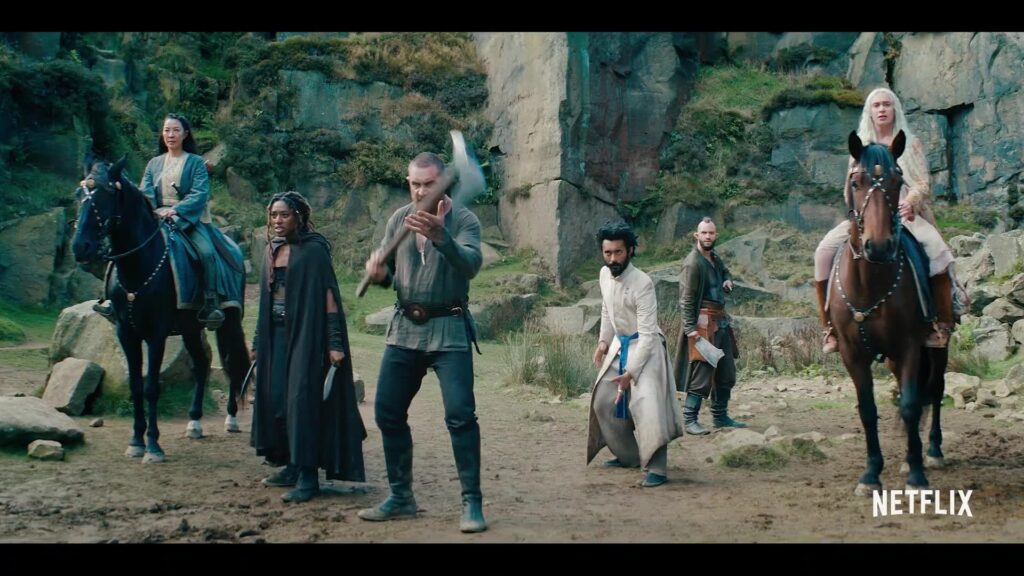
The story follows an assembly of protagonists including, Eile, aka “the Lark” , a minstrel destined to unite the elves against a common foe and assume the mantle of the first Witcher; the always commanding presence of Michelle Yeoh, as sword wielding Scian, the last member of the Ghost Clan; Francesca Mills as the feisty dwarf, Meldof; and Laurence O’Fuarain, as Fjall of the Dog Clan.
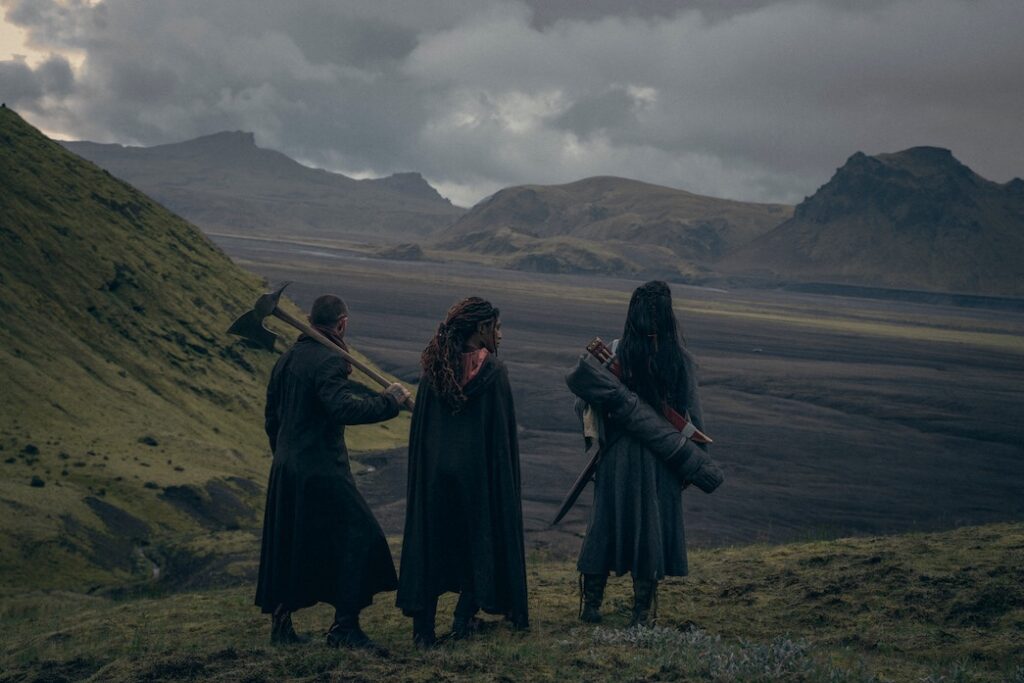
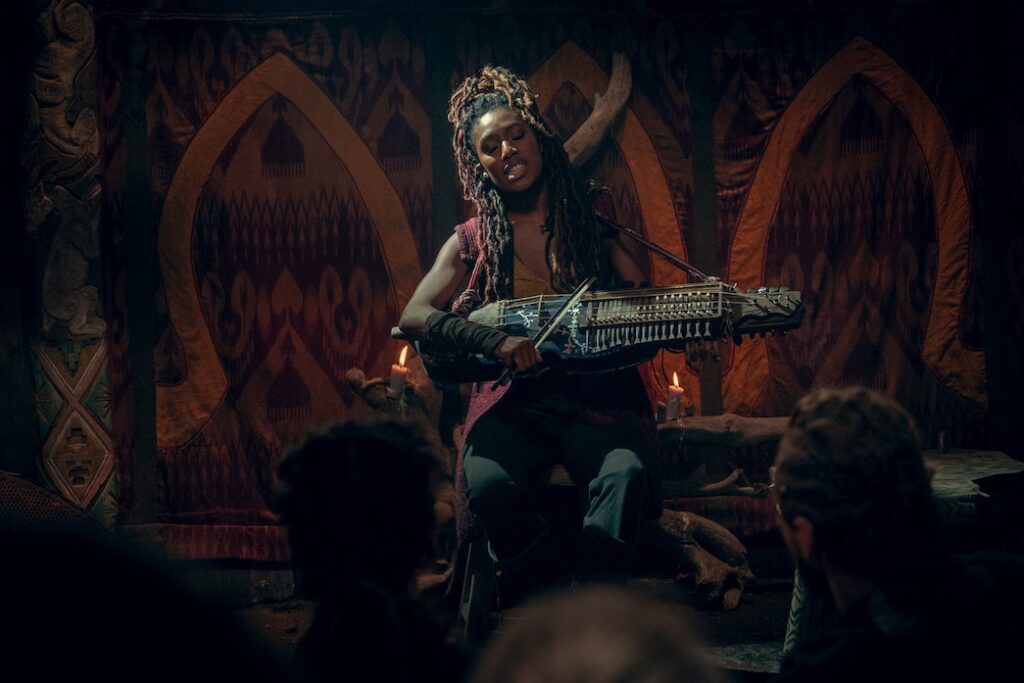
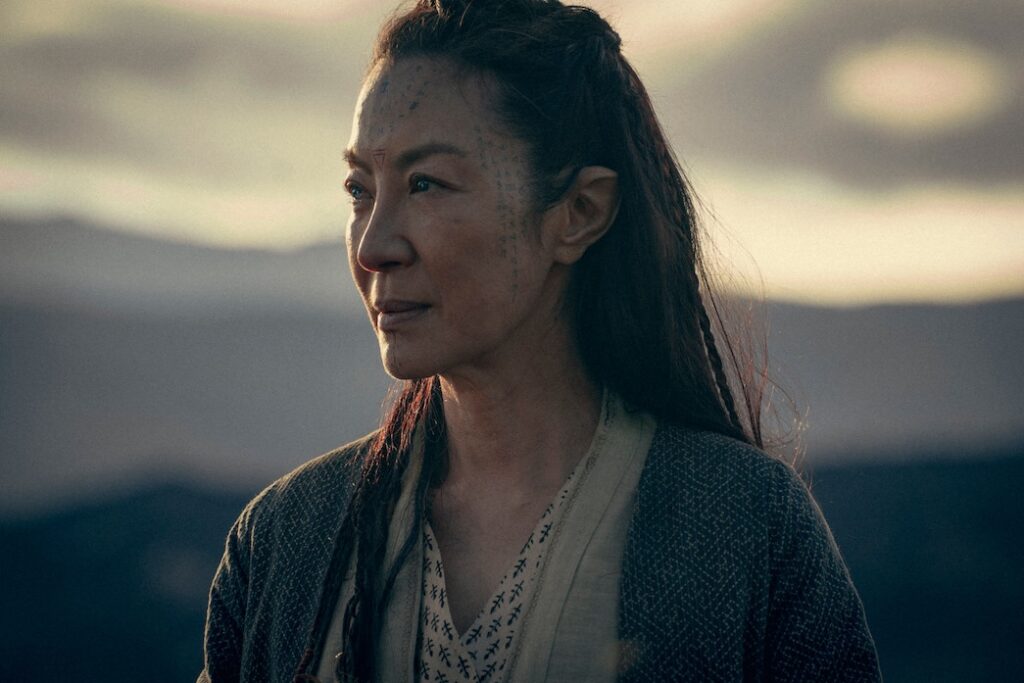
Other casting includes Lenny Henry, as Chief Druid Balor, who appears to be thoroughly enjoying himself consorting with chaos demons and slitting throats. Mirren Mack is pitch perfect as the mean, manipulated, Princess Merwyn.
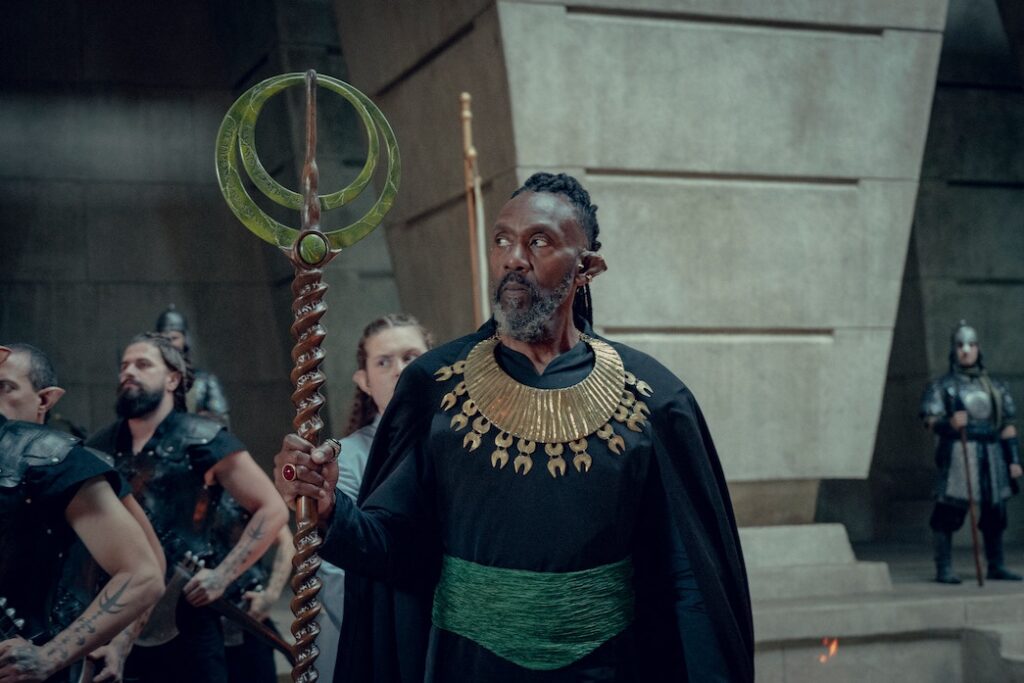
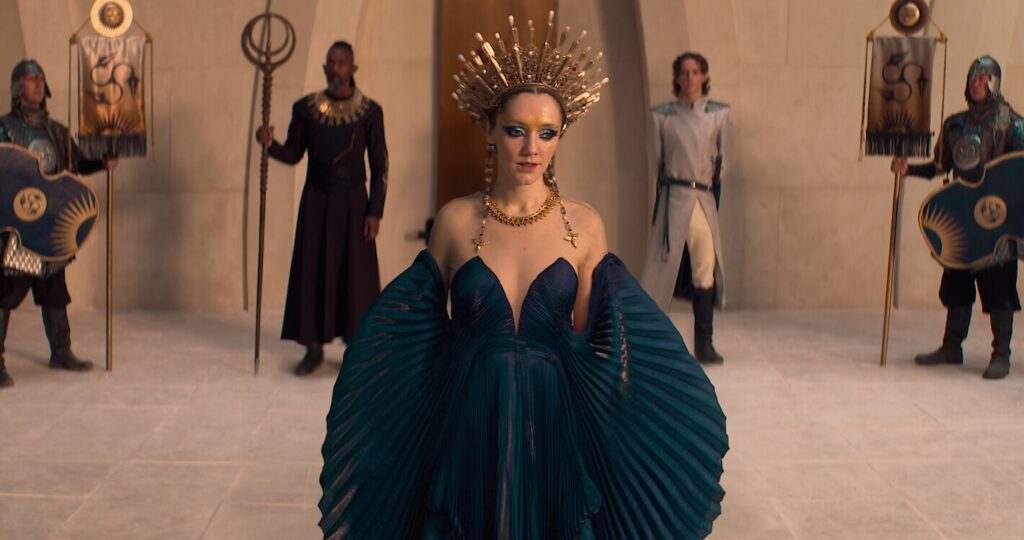
In Blood Origin, the central elven characters confront a couple of monsters as they follow their personal quests. One gigantic creature – a creepy, Cloverfield-like thing, evaporating people with bolts of energy – is at its most effective when shot creeping around a castle’s hallways.
The show is surprisingly sweary, with Joey Batey, as the bard, Jaskier, setting the tone in the first scene of Episode One, where he is caught mid-battle dropping enough “f-bombs” to blitz a small nation.
It took me three viewings to frame Blood Origin in a way I could enjoy. The feel of the show is Blake’s 7 meets a game of Dungeons and Dragons, but in the end it reminded me of Schwarzenegger’s Conan: The Barbarian (1982). The sense that we are watching a 1980’s Sword and Sorcery outing comes from the huge, sparsely populated sets, the on-the-nose gathering of assorted adventurers, and the scenery chewing performances.
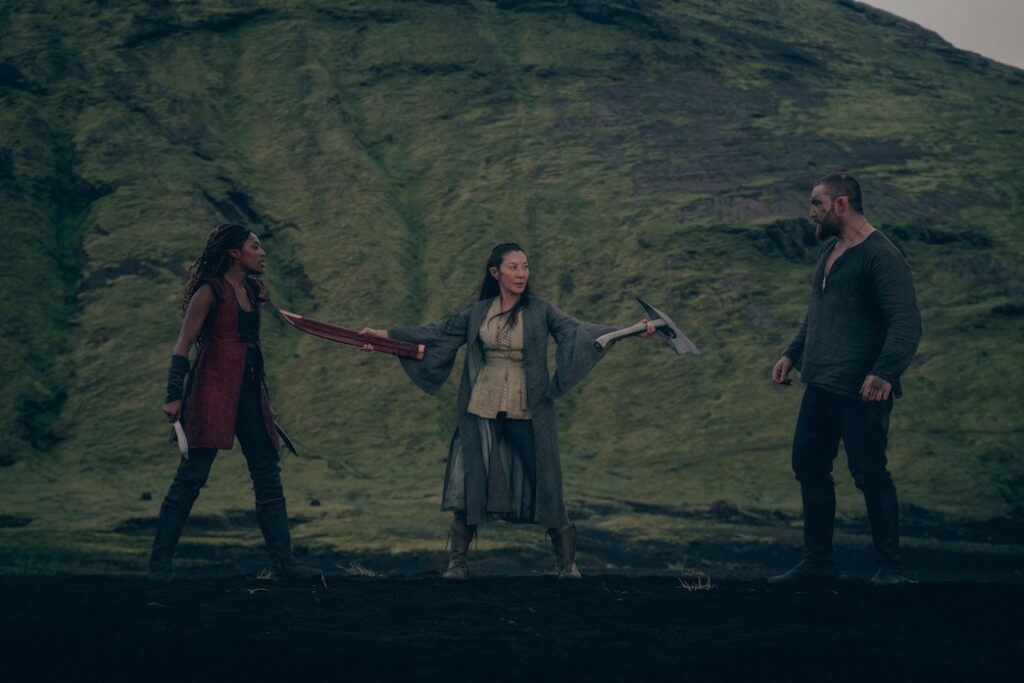
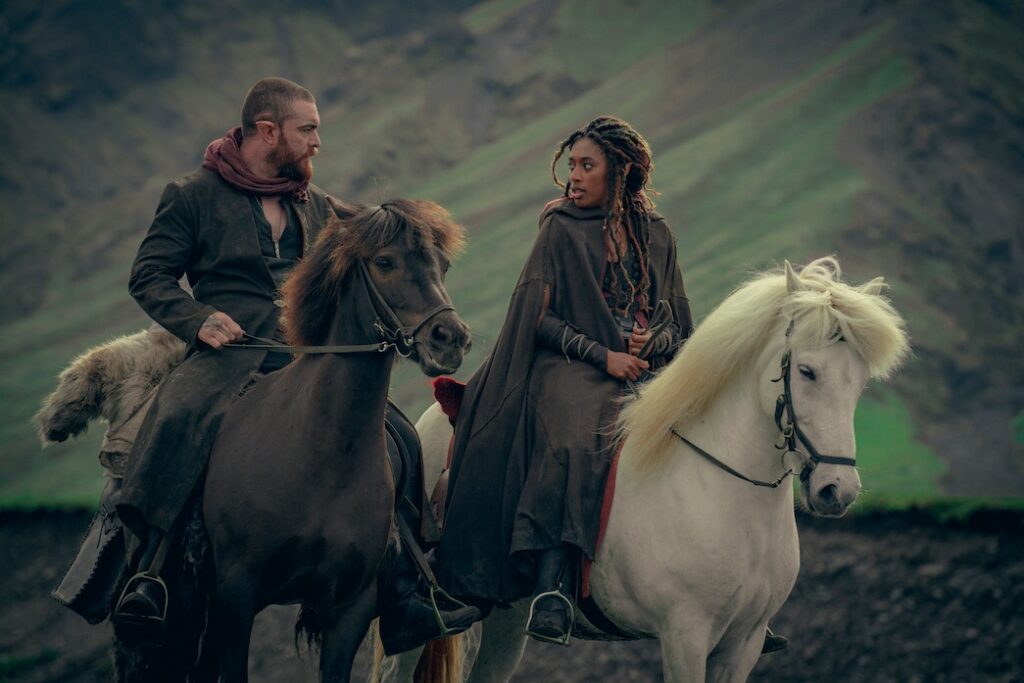
Blood Origin is narrated and, as in Conan: The Barbarian, the narration involves a lot of expository work, particularly during the last, somewhat rushed, cataclysmic moments. At times, it feels like the narration is papering over cracks that have appeared in the editing process.
Blood Origin may be fun to watch, but it has the feel of a troubled production, uncertain about its own limitations.
Episode three’s mid-chase ending gives the impression the show was intended as two longer parts, or even more but different parts. (Many of the audience’s criticisms have picked up on the disjoined story structure).
For all the throat slitting, the many sword and knife fights are curiously bloodless affairs, although there’s a casually violent shot of a hapless character being torn in two by the Witcher that compelled me to watch it again and again, because I couldn’t believe what I’d just seen.
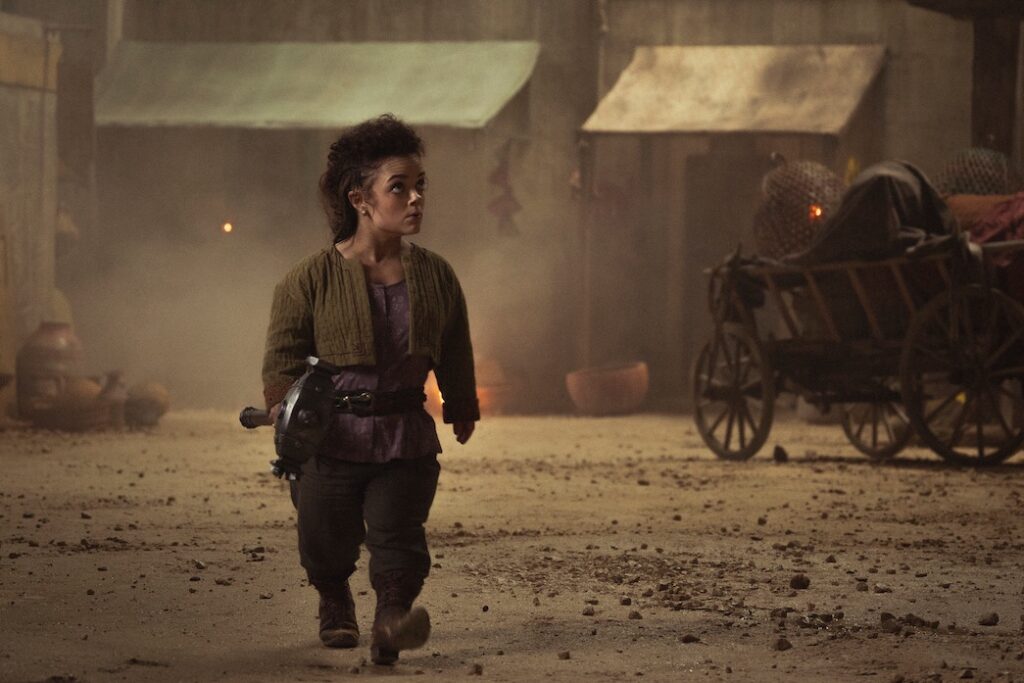
Talking to Samantha Nelson on the Netflix site Tudum, show runner Declan de Barra explained the eventual four-episode format as being “what happened organically, the shaping into four episodes from all the footage we shot”. This seems an extraordinarily lackadaisical form of TV production. I guess streaming schedules must allow for such on-the-hoof creativity, but I still find it hard to imagine a situation where a show runner tells their financiers: we’ll just shoot loads of material, stop when the budget runs out and then edit it into whatever episode length later.
Barra also commented that he, “wanted it to be a punch in the face, so that you can’t take your eyes off it”. This also seems muddled – if you keep your eyes on something, you can duck before it punches you in the face.
I’m not suggesting dodging Witcher: Blood Origin, but it does wobble around like a pugilistic pub brawler – it’s fun to watch, but best not get too involved.
Tim Robins
• The Witcher: Blood Origin is streaming on Netflix
• Buy The Witcher Series Collection by Andrzej Sapkowski (AmazonUK Affiliate Link)
Eight Books Set (Last Wish, Sword of Destiny, Blood of Elves, Time of Contempt, Baptism of Fire, Tower of the Swallow, Lady of the Lake, Seasons of Storms)
• The Official ‘Witcher’ Timeline
From the Conjunction of the Spheres to chaos at Kaer Morhen, it’s all here
• Tudum – In Deleted Scenes, ‘The Witcher: Blood Origin’ Visits Even More Magical Worlds
Showrunner Declan de Barra explains why the series feels like “you can’t take your eyes off it.” (He also expands on the origins of an Elven “prototype” Witcher here)
A freelance journalist and Doctor Who fanzine editor since 1978, Tim Robins has written on comics, films, books and TV programmes for a wide range of publications including Starburst, Interzone, Primetime and TV Guide.
His brief flirtation with comics includes ghost inking a 2000AD strip and co-writing a Doctor Who strip with Mike Collins. Since 1990 he worked at the University of Glamorgan where he was a Senior Lecturer in Cultural and Media Studies and the social sciences. Academically, he has published on the animation industry in Wales and approaches to social memory. He claims to be a card carrying member of the Politically Correct, a secret cadre bent on ruling the entire world and all human thought.
Categories: Books, Digital Media, Features, Other Worlds, Reviews, Television
